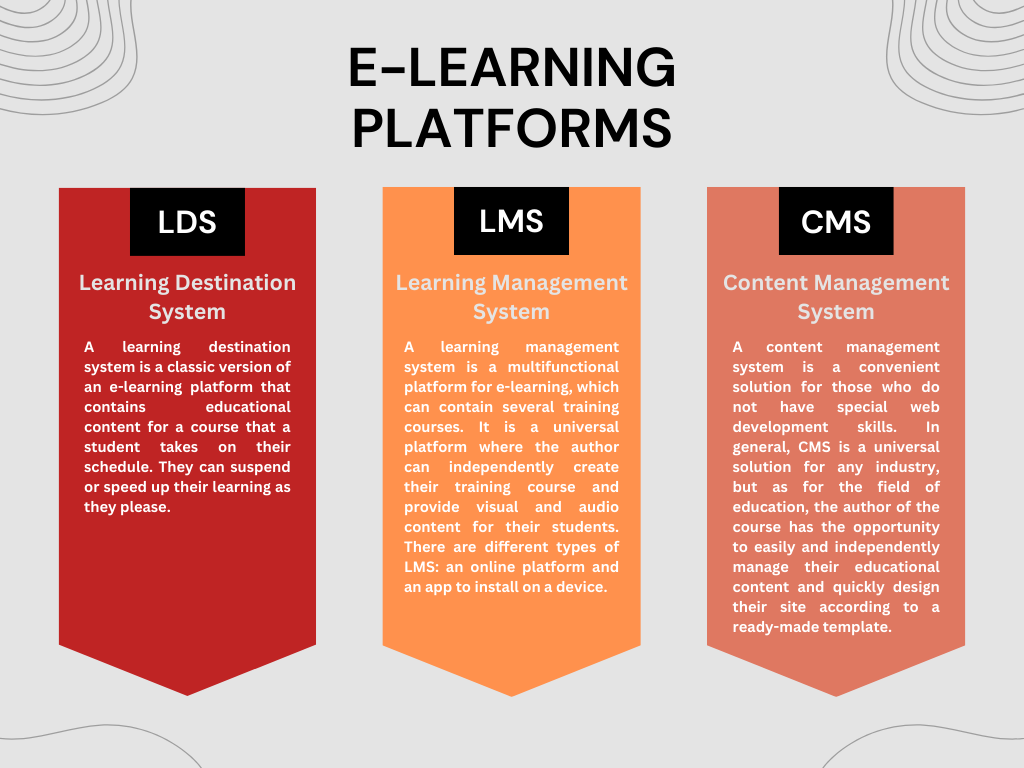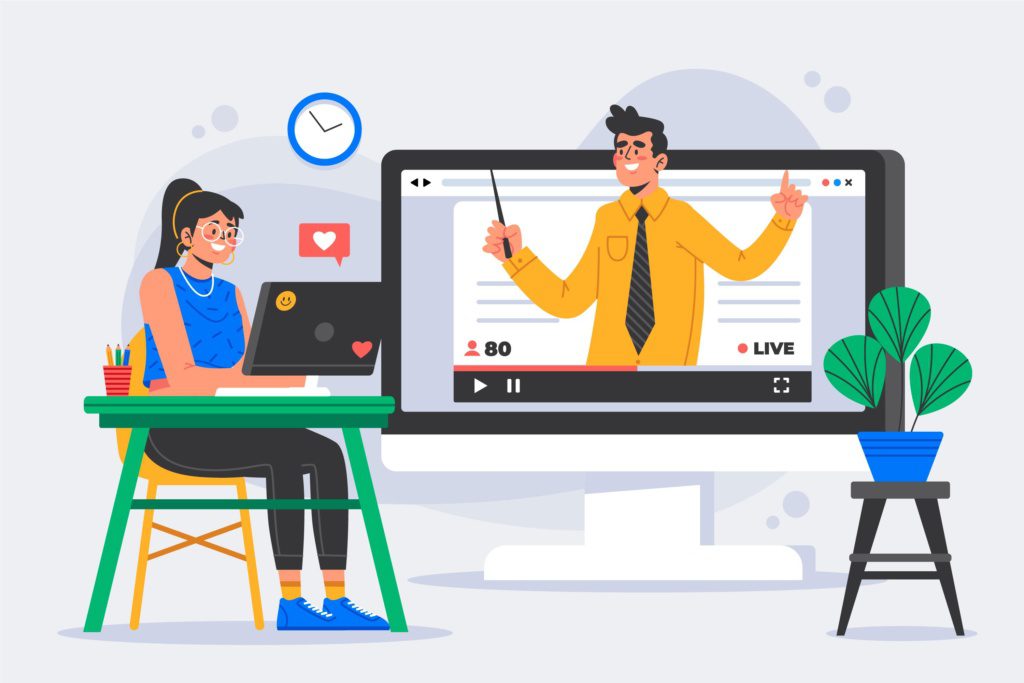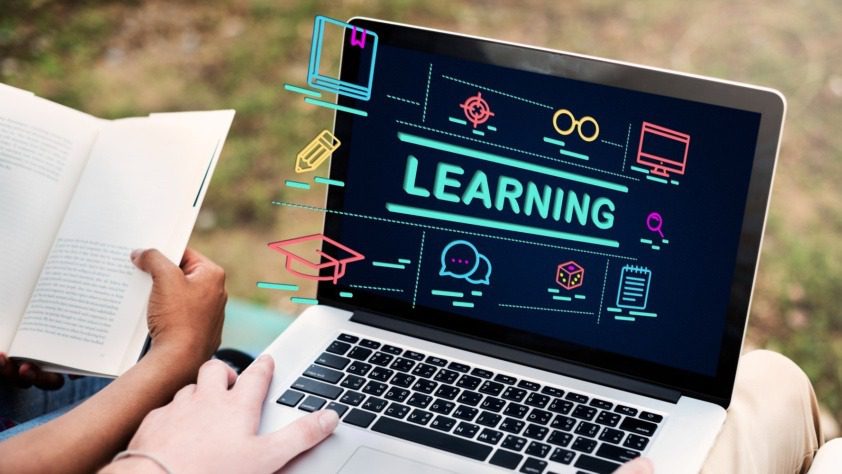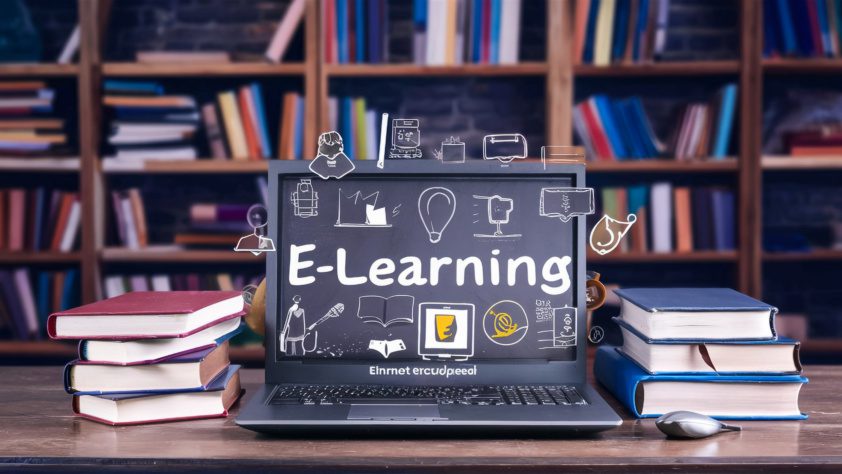The introduction of IT services in education reduces obstacles and barriers that were previously unresolvable with traditional methods of teaching in classrooms with paper textbooks 20-30 years ago. Online learning platforms and remote classes have gained wide popularity during the COVID-19 pandemic, but even after the lifting of quarantine restrictions, remote learning has not lost its relevance. For example, 70% of students say that online learning is significantly better than traditional classes, and the number of students who have chosen distance learning should grow to 57 million people by 2027.
We’ll explain in more detail the reasons for the success of IT for education, its advantages, challenges, and the experience of our specialists in working with educational software in our new blog post.
The Role of Digitalization in Education
Information technologies make it possible to ensure a flexible study schedule and successfully conduct a training course by meeting all deadlines. In this case, e-learning platforms have long been used, among which the following can be mentioned:

Exploring the Upsides and Downsides of Digitalization in Education
The Benefits of IT Services in Modern Student Education
The number of pupils and students who choose modern technologies for learning is increasing every year. Among the reasons for the increase in the popularity of IT in education, the following can be mentioned:
- Enhance the learning process. Classic text textbooks and images are enhanced with interactive visual content (videos, online quizzes, immersive experiences). The gamified approach to learning, in which students understand the discipline while completing a quest with tasks, plays a key role in strengthening the assimilation of materials. The most obvious example of gamification in the educational process is the Duolingo platform, where students from all over the world learn any foreign language of their choice.
- Saving money. By registering for an online course, users save their money, primarily on doing trips, because they do not need to get to the place where the courses are held. Also, usually, when buying an online course, there is no need to buy additional educational materials, but if the course includes additional literature, then the e-book, as a rule, costs about 2-3 times cheaper than a paper one.
- Personalized learning experience. In particular, the personalization of learning here refers not only to the individual schedule but also to the level of knowledge at which the student is. Some online platforms for learning foreign languages offer the user a test of knowledge of this language so that the program can then automatically determine the training program that is best suited for them. A similar algorithm is used not only for education. Applications for workouts (height, weight, the purpose of classes, etc.) and online platforms for working with psychologists (type of mental issues, therapist client wants to deal with, age, gender, etc.) also have a similar personalization system.
- Productivity improvement. Gamification and personalization of learning with digital technologies increase the student’s level of concentration, which positively affects his further success. So, according to IBM, e-learning can increase the productivity of students by 50%.
“So, according to IBM, e-learning can increase the productivity of students by 50%.”
The Strategic Advantages of IT Services in Modern Teaching

Modern technologies provide the following advantages for teachers:
- The ability to unite students from different places. Thanks to remote learning, the teacher no longer needs to gather students in one place. Through online platforms, teachers can teach students who are in different cities or even countries at the same time.
- Provision of interactive content to students. Modern technologies provide wider opportunities for teachers to transfer content to students that will deepen their knowledge, including e-books, video content, audio materials, interactive features such as quizzes, etc. All this variety is available on one platform that has a convenient and intuitive interface.
- Ability to track students’ progress on an online platform. Thanks to e-learning platforms, teachers with admins can track their student’s progress on a platform, students’ course progress, and how many lessons and modules they have completed in a given time.
Overcoming IT Challenges in Education
Any successful solution, even though it was time-tested, has pitfalls and challenges that web developers and course owners must overcome. These challenges usually include technical difficulties, lack of teacher training, Internet connection problems, which are especially relevant for video calls, etc.
There is always a solution to each of these challenges. As for teachers who are just starting to use modern technologies for teaching, separate training courses and training are offered for such teachers on the rules of handling devices and software. The problem with the Internet can be solved by choosing a more reliable and verified Internet provider that will provide a good connection with the students. And in order to provide online classes with high-quality software, you need to contact proven specialists who have extensive experience in development and testing, and who are also ready to provide constant technical support for your solution after the moment of release.
TuneLab's Journey in Overcoming Challenges with IT Solutions

The case of LMS Chinese 1-2-tree is a clear example that the selection of the development team for the creation of educational software matters. Before the client came to us, Chinese 1-2-tree was worked on by another development team that used chaotic work methods, as a result of which TuneLab specialists had to redo the task pool and use their own Jira to start work on the project.
The platform had a ready-made site design, but there were gaps in the logic, which we worked on. In particular, this applies to the functionality of user interaction with the interface. Because the logic was poorly written, we had to rewrite it. Among the most interesting features that our developers have added to Chinese 1-2-tree is the addition of book dubbing. Narrators that were recorded in two different versions – male and female. And the recording quality of both was different. If there was a female voice, there were clear pauses between the reading and pronunciation of hieroglyphs. And we set up the system so that it sees where.
Two types of parsers were involved in the development – for PDF and mp3. The PDF parser extracted all the visual content in the PDF file and highlighted the right hieroglyphs. We inserted into the system a database of the most popular characters in China (about 6200-6700 of them). This is a basic set of characters that everyone knows. The total number of hieroglyphs is over 10,000, but most of these hieroglyphs are not often used. The second parser is for audio files, which detects the sound in the file and cuts off the pieces. The logic of building dubbing books was more manual because the client did not want to use ready-made solutions.
IT services facilitate the learning process for both students and teachers. Thanks to e-learning, students can gain knowledge more accessible by personalizing the learning experience. Thus, they can study a certain discipline at any time and precisely according to their defined level of knowledge. The teachers themselves can present their material more accessible with the help of a variety of innovative software offered by the IT industry.
However, for the optimal operation of IT tools for studying, it is necessary to take into account such criteria as the quality of hardware and software, the training and qualifications of teachers, and a good Internet connection that will allow you to deliver all the necessary educational material.
Considering all the advantages and challenges, IT services raise learning to a new level, making it a more accessible and understandable process in which students are more productive and successful.


